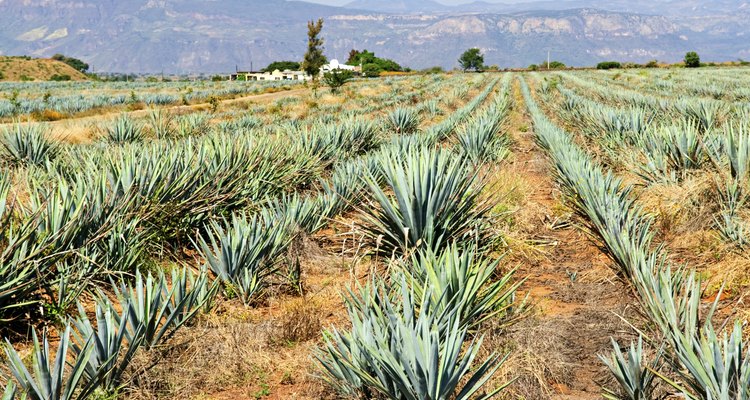
Elenathewise/iStock/Getty Images
Several kinds of agave plants contain distinct varieties of fibers. Agave can grow in drought-tolerant environments and it thrives in dry, sterile soils. Several countries grow species of agave for commercial applications. You can find agave fiber used to manufacture textiles, industrial fillers, paper, filters, mattresses, carpets and a variety of ropes and twines.
Agave Fiber Extraction
Agave plants are stemless perennials that contain fibers. You can remove these fibers with either a machine or by hand. This removal process involves crushing or beating the leaves with a rotating wheel that has blunt edges. The crushed leaf particles are then washed, brushed and dried, creating the agave fiber. You can grade the agave fiber by the size of the plant and by the quality of the resulting fiber.
Agave Fiber Products
Traditionally, indigenous people, including the American Indians, used agave fiber to make twine. Today, manufacturers commonly use agave fiber in the textile industry. Additionally, companies that produce green products such as washcloths, artisan crafts, slippers, belts and spa products commonly use agave fiber. Other applications for agave fiber include wall coverings and yarns made for specialty products such as durable carpets and rugs.
Industrial Products
Different industries use agave fiber to replace the harsh chemicals and toxicities found in synthetic fibers. Manufacturers use agave fiber as a strengthening agent for asbestos and fiberglass in composite materials. There are three different grades of agave fiber used in industrial applications. Manufacturers use the low grade to produce paper products. The cordage industry uses the medium grade of agave fiber to make ropes and twines. Finally, manufacturers use the high grade of agave fiber to produce fine yarns and threads.
Types of Agave Fiber
The specific varieties of agave plants have different characteristics and produce different fiber variations. Sisal is an agave plant variety that will grow almost anywhere and has a strong, stiff fiber commonly used to make twine and ropes. Henequen is another agave plant variety that produces a hard and wiry fiber used to produce binder and durable mats that have luster and resist stains. The agave plant istle has short and coarse fibers used to make brushes and low-cost twine products.
Related Articles
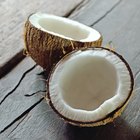
Uses of Coconut Fiber
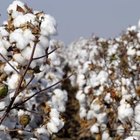
Types of Cotton Fabric
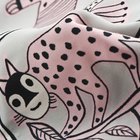
What Is Berber Fleece?
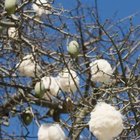
List of Plants Used for Clothing
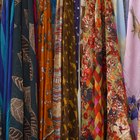
What Are Clothing Textures?
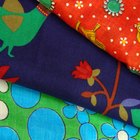
What Is Arnel Vintage Material Fabric?
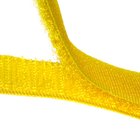
Types of Velcro

How Is Wool Turned Into Fabric?

How to Get the Stiffness Out of ...
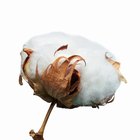
Ring Spun Cotton vs. Combed Cotton
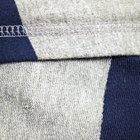
What Is French Terry Cloth?
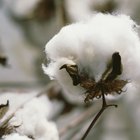
What Is Cotton Plisse?

The Best Kinds of Synthetic, ...

How to Stop Satin from Fraying
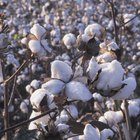
How Is Cotton Made?
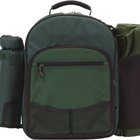
1,000 Denier Cordura Specifications

What Is Pinpoint Cotton?

Care Instructions for Voile Fabric

Different Types of Flannel Fabrics
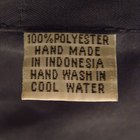
Definition of Polyester Staple Fiber
References
- "Agaves of Continental North America"; Howard Scott Gentry; 2004
- "Papermaking with Garden Plants & Common Weeds"; Helen Hiebert; 2006
Writer Bio
Allison Adams has worked as a registered dietitian since 1996. She began writing professionally in 2000, with work featured in a variety of medical publications such as "Women's Health Magazine" and the "New England Journal of Medicine." Adams holds a Master of Science in nutrition and food sciences from the University of Wisconsin-Madison.
Photo Credits
Elenathewise/iStock/Getty Images